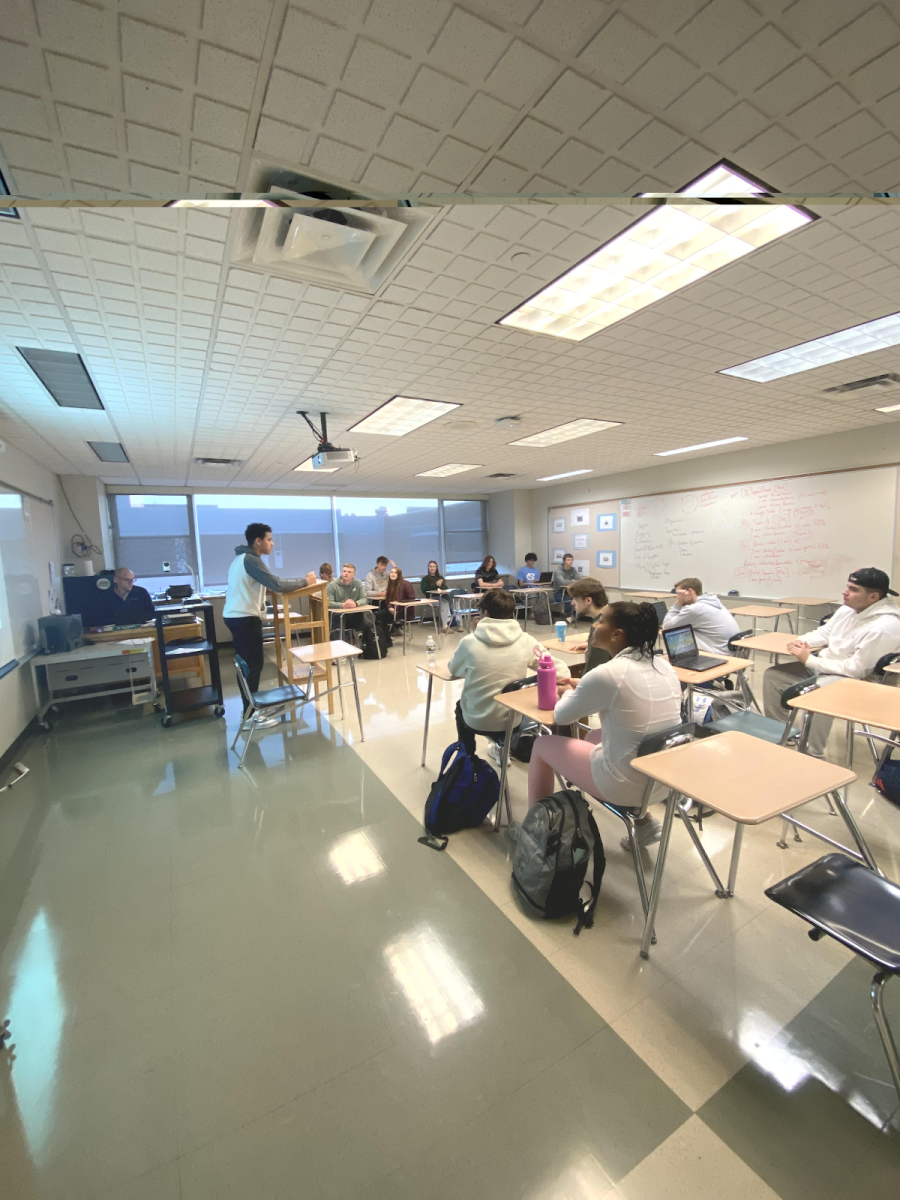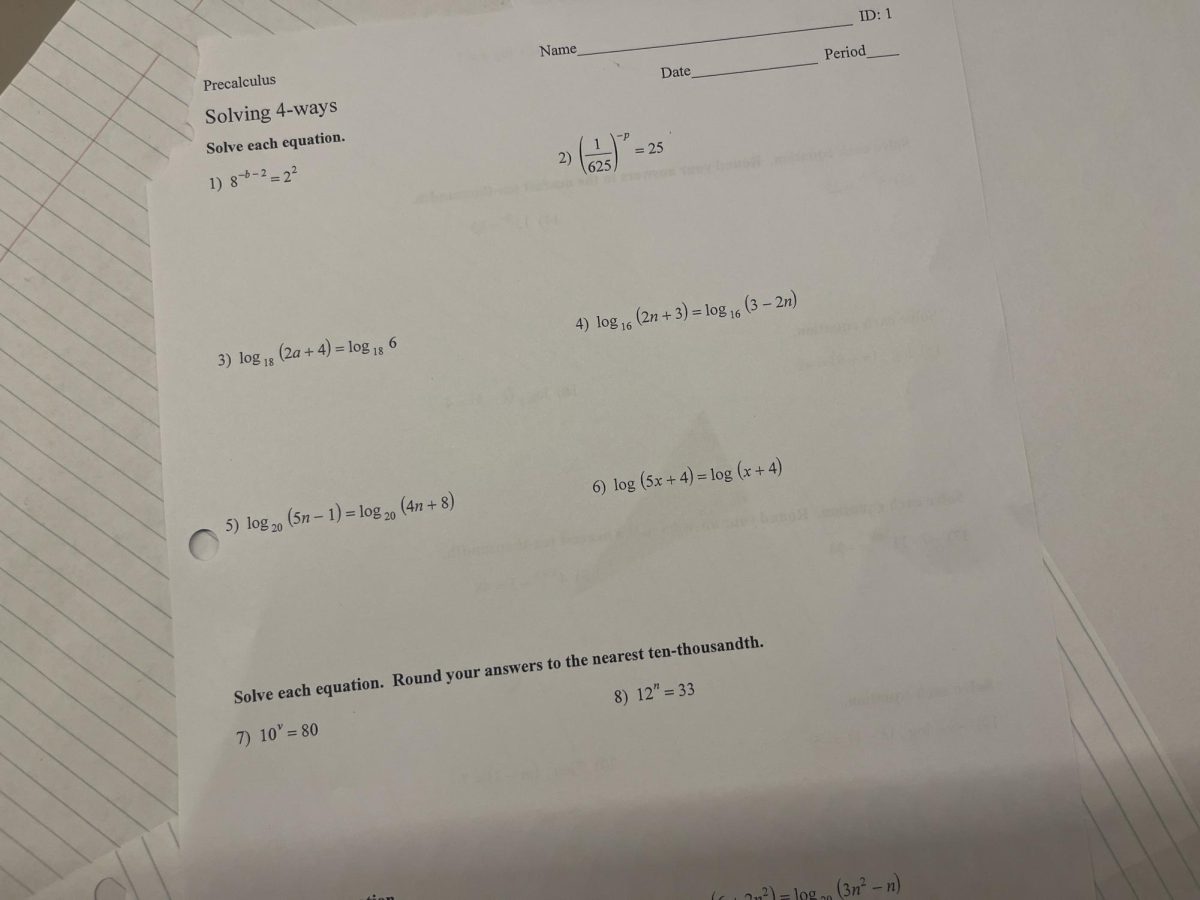Do you believe public speaking should be a required class for all students? In many ways, speaking and listening are important for all students in all aspects of life.” This is a quote from Kurt Hutchison, a public speaking teacher at Pennridge. At Pennridge. Taking a public speaking class can benefit one’s ability to communicate more effectively and provide valuable practice, preparing students for future success in college and everyday life. Although some argue that you can learn to present in regular classes, a dedicated public speaking class offers specialized instruction, more practice opportunities, and focused feedback, which is invaluable in developing practical speaking and presentation skills. Public speaking classes teach students to organize their thoughts and speak confidently. A typical public speaking course includes lessons on speech structure, vocal variety, body language, and the use of visual aids.
The argument against taking a public speaking class often centers on the idea that students can learn these skills in other subjects, like English or social studies, during regular assignments and presentations. While it’s true that students practice speaking in these classes, the level of instruction and practice could be more focused and thorough in a dedicated public speaking class. In regular high school classes in history or English, for example, students might speak once or twice a semester, generally to present assignment content rather than to develop speaking skills. According to the National Communication Association, 75% of students speak in class an average of 2-3 times per semester. In contrast, students may practice more in public speaking classes, with 6-10 speeches a semester; they get much more opportunities to improve their speaking skills. According to a study by the National Association of Colleges and Employers (NACE), communication skills, particularly oral communication, are among the top attributes employers look for in new hires. Yet, this study also found that only 25% of students feel confident in their public speaking abilities when entering the workforce.
Carter Thompson initially took the public speaking class as an English credit, but his perspective changed significantly over the semester. He learned “to be more confident when talking and how to read people better.” Thompson is now more optimistic about public speaking. It helps develop confidence and offers valuable skills for life. Thompson no longer relies on fillers like “um” or “uh,” he finds himself stumbling over his words much less frequently, reflecting his progress in his speaking skills.
A dedicated class in public speaking provides students with the tools, techniques, and practice they need to excel in any situation that requires communication. In contrast, regular classes may offer some speaking opportunities. These opportunities provide a different level of focus and feedback. This class teaches students valuable skills that will serve them well throughout their future careers.





